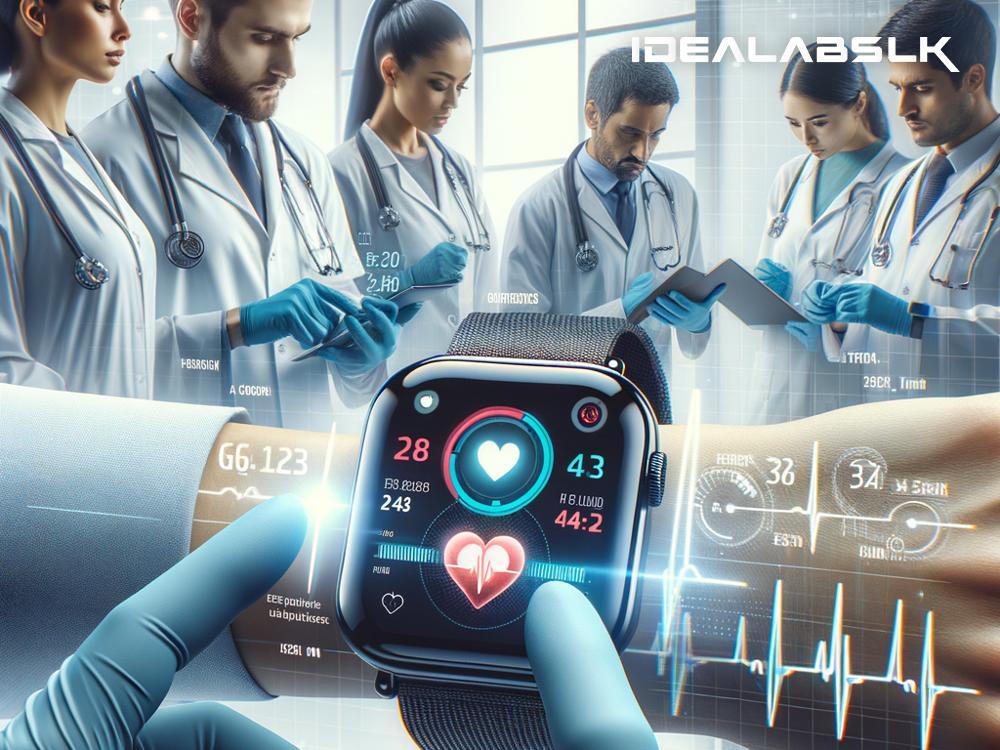AI in Wearable Medical Devices: Transforming Health Monitoring
In recent years, the leap forward in artificial intelligence (AI) has revolutionized many sectors, including healthcare. Among the innovations, wearable medical devices equipped with AI technology stand out for their ability to offer dynamic and personalized health monitoring. This fascinating blend of technology and healthcare not only empowers individuals to take charge of their well-being but also opens up new avenues for preventive medicine.
What Are Wearable Medical Devices?
Wearable medical devices are compact gadgets you can wear, like smartwatches, fitness bands, and even smart glasses. These devices do more than tell the time or count your steps; they can monitor various health parameters, such as heart rate, blood pressure, and sleep quality. With the integration of AI, these devices have become smarter, moving from generic health tracking to personalized health monitoring and advice.
The Role of AI in Enhancing Health Monitoring
AI transforms wearable devices from passive data loggers to active health advisors. It does so in several key ways:
1. Personalized Health Insights
AI algorithms can learn from your health data over time. This means your wearable device can provide insights and recommendations tailored specifically to you. For example, it might notice patterns in your heart rate data that suggest you're stressed and recommend breathing exercises or a break.
2. Early Warning Signs
One of the most promising aspects of AI in health monitoring is its ability to predict potential health issues before they become serious. By analyzing trends and anomalies in your health data, AI can alert you to seek medical advice early, potentially avoiding emergency situations.
3. Enhancing Accuracy
AI can filter out noise and errors in data, making the readings from wearable devices more accurate. This means you and your healthcare provider can make better-informed decisions about your health.
4. Real-time Monitoring and Response
Wearable devices equipped with AI can provide real-time feedback. For instance, if your device detects an irregular heartbeat, it can immediately notify you to take it easy or contact a healthcare professional, offering an immediate response to potential health risks.
Empowering Individuals and Healthcare Providers
The benefits of AI in wearable medical devices extend to both individuals and healthcare professionals:
-
For Individuals: These devices empower people to take control of their health. They provide tangible data that individuals can use to understand their health better and make informed lifestyle choices. Plus, the real-time monitoring and early warnings help people feel more secure, knowing they're being "watched over" by their tiny health guardians.
-
For Healthcare Providers: AI-enhanced wearables can offer a wealth of health data, helping healthcare providers offer more personalized treatments. They also enable remote monitoring of patients, reducing the need for frequent hospital visits and allowing for early intervention when necessary.
Challenges and Considerations
Despite their potential, the use of AI in wearable medical devices comes with its set of challenges:
-
Privacy and Security: With sensitive health data being collected, ensuring the security and privacy of this information is paramount.
-
Data Overload: The sheer volume of data generated can be overwhelming for both individuals and healthcare providers, necessitating sophisticated systems to manage and make sense of it all.
-
Accuracy and Reliability: While AI can enhance accuracy, ensuring these devices meet medical-grade reliability standards is crucial to avoid misinterpretations and misdiagnoses.
The Future of Health Monitoring
As technology advances, we can expect wearable medical devices to become even more integrated into our daily lives. Future developments might include even more sophisticated sensors and AI capabilities, enabling the monitoring of a wider range of health parameters and conditions.
In conclusion, the combination of wearable technology and AI offers a promising future for health monitoring. By providing personalized, dynamic insights into our health, these devices empower us to lead healthier lives. However, to fully realize their potential, we must address the challenges head-on, ensuring these innovative tools can truly enhance healthcare for everyone. As we continue to navigate this exciting frontier, one thing is clear: the future of health monitoring lies on our wrists, in our glasses, and woven into the very fabric of our everyday lives.

